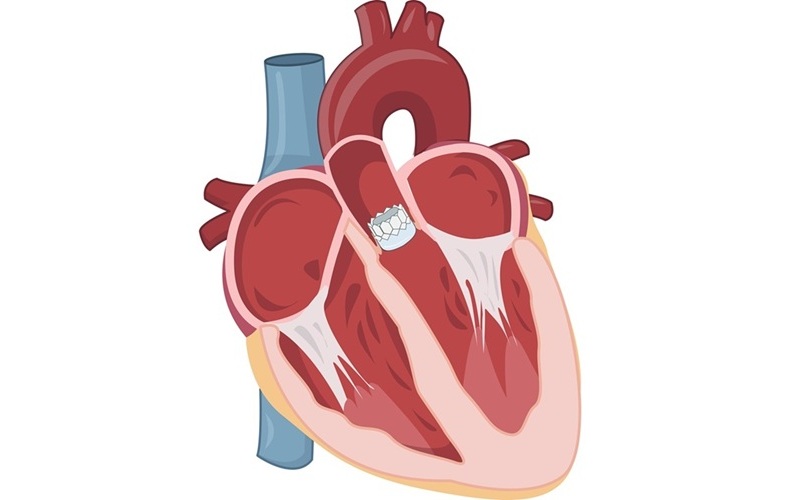Prescribed Blood Thinners for COVID-19 Patients Lower Hospitalizations and Reduce Mortality by Almost Half
|
By HospiMedica International staff writers Posted on 07 Oct 2021 |

A study has found that having a protocol to use blood thinners for COVID-19 patients reduces patient mortality by almost half.
To find ways to decrease clotting related to COVID-19, researchers from the University of Minnesota (Minneapolis, MN, USA) Basel University (Basel, Switzerland) looked at reducing hospitalizations by using prescribed blood thinners. Many individuals with COVID-19 develop abnormal blood clots from high inflammation, which can lead to serious health complications and mortality.
The study found that patients on blood thinners before having COVID-19 were admitted less often to the hospital, despite being older and having more chronic medical conditions than their peers. The findings revealed that blood thinners - regardless of if they are being used before being infected with COVID-19 or started when admitted to the hospital for treatment of COVID-19 - reduced deaths by almost half. The study also found that hospitalized COVID-19 patients benefitted from blood thinners regardless of the type or dose of the medication used.
Researchers note that the next steps for this work is to ensure that the results of this study are consistent and not isolated to the health care systems in advanced countries - like the US and Switzerland - or in certain populations, like Caucasians. They are currently working with research groups in other parts of the world, like Egypt, to look at how blood thinners impact patients in less-invested health care systems and in different patient populations.
“We know that COVID-19 causes blood clots that can kill patients,” said Sameh Hozayen, MD, MSC, an assistant professor of medicine at the U of M Medical School. “But, do blood thinners save lives in COVID-19? Blood thinners are medications prescribed to prevent blood clots in patients with a prior blood clot in their lungs or legs. They also prevent blood clots in the brain secondary to abnormal heart rhythms, like atrial fibrillation. Blood thinners are the standard of treatment in these diseases, which is why we looked at data to see if it impacted hospitalizations related to COVID-19.”
“Unfortunately, about half of patients who are being prescribed blood thinners for blood clots in their legs, lungs, abnormal heart rhythms or other reasons, do not take them. By increasing adherence for people already prescribed blood thinners, we can potentially reduce the bad effects of COVID-19,” Hozayen said.
Related Links:
University of Minnesota
Basel University
Latest COVID-19 News
- Low-Cost System Detects SARS-CoV-2 Virus in Hospital Air Using High-Tech Bubbles
- World's First Inhalable COVID-19 Vaccine Approved in China
- COVID-19 Vaccine Patch Fights SARS-CoV-2 Variants Better than Needles
- Blood Viscosity Testing Can Predict Risk of Death in Hospitalized COVID-19 Patients
- ‘Covid Computer’ Uses AI to Detect COVID-19 from Chest CT Scans
- MRI Lung-Imaging Technique Shows Cause of Long-COVID Symptoms
- Chest CT Scans of COVID-19 Patients Could Help Distinguish Between SARS-CoV-2 Variants
- Specialized MRI Detects Lung Abnormalities in Non-Hospitalized Long COVID Patients
- AI Algorithm Identifies Hospitalized Patients at Highest Risk of Dying From COVID-19
- Sweat Sensor Detects Key Biomarkers That Provide Early Warning of COVID-19 and Flu
- Study Assesses Impact of COVID-19 on Ventilation/Perfusion Scintigraphy
- CT Imaging Study Finds Vaccination Reduces Risk of COVID-19 Associated Pulmonary Embolism
- Third Day in Hospital a ‘Tipping Point’ in Severity of COVID-19 Pneumonia
- Longer Interval Between COVID-19 Vaccines Generates Up to Nine Times as Many Antibodies
- AI Model for Monitoring COVID-19 Predicts Mortality Within First 30 Days of Admission
- AI Predicts COVID Prognosis at Near-Expert Level Based Off CT Scans
Channels
Critical Care
view channel
AI Interpretability Tool for Photographed ECG Images Offers Pixel-Level Precision
The electrocardiogram (ECG) is a crucial diagnostic tool in modern medicine, used to detect heart conditions such as arrhythmias and structural abnormalities. Every year, millions of ECGs are performed... Read more
AI-ECG Tools Can Identify Heart Muscle Weakness in Women Before Pregnancy
Each year, some mothers die from heart-related issues after childbirth, with many of these deaths being preventable. Screening for heart weakness before pregnancy could be crucial in identifying women... Read moreSurgical Techniques
view channel
Early TAVR Intervention Reduces Cardiovascular Events in Asymptomatic Aortic Stenosis Patients
Each year, approximately 300,000 Americans are diagnosed with aortic stenosis (AS), a serious condition that results from the narrowing or blockage of the aortic valve in the heart. Two common treatments... Read more
New Procedure Found Safe and Effective for Patients Undergoing Transcatheter Mitral Valve Replacement
In the United States, approximately four million people suffer from mitral valve regurgitation, the most common type of heart valve disease. As an alternative to open-heart surgery, transcatheter mitral... Read more
No-Touch Vein Harvesting Reduces Graft Failure Risk for Heart Bypass Patients
A coronary artery bypass graft (CABG) is a surgical procedure used to enhance blood flow and oxygen supply to the heart in individuals with coronary heart disease. During the procedure, a healthy blood... Read more
DNA Origami Improves Imaging of Dense Pancreatic Tissue for Cancer Detection and Treatment
One of the challenges of fighting pancreatic cancer is finding ways to penetrate the organ’s dense tissue to define the margins between malignant and normal tissue. Now, a new study uses DNA origami structures... Read morePatient Care
view channel
Portable Biosensor Platform to Reduce Hospital-Acquired Infections
Approximately 4 million patients in the European Union acquire healthcare-associated infections (HAIs) or nosocomial infections each year, with around 37,000 deaths directly resulting from these infections,... Read moreFirst-Of-Its-Kind Portable Germicidal Light Technology Disinfects High-Touch Clinical Surfaces in Seconds
Reducing healthcare-acquired infections (HAIs) remains a pressing issue within global healthcare systems. In the United States alone, 1.7 million patients contract HAIs annually, leading to approximately... Read more
Surgical Capacity Optimization Solution Helps Hospitals Boost OR Utilization
An innovative solution has the capability to transform surgical capacity utilization by targeting the root cause of surgical block time inefficiencies. Fujitsu Limited’s (Tokyo, Japan) Surgical Capacity... Read more
Game-Changing Innovation in Surgical Instrument Sterilization Significantly Improves OR Throughput
A groundbreaking innovation enables hospitals to significantly improve instrument processing time and throughput in operating rooms (ORs) and sterile processing departments. Turbett Surgical, Inc.... Read moreHealth IT
view channel
Printable Molecule-Selective Nanoparticles Enable Mass Production of Wearable Biosensors
The future of medicine is likely to focus on the personalization of healthcare—understanding exactly what an individual requires and delivering the appropriate combination of nutrients, metabolites, and... Read more
Smartwatches Could Detect Congestive Heart Failure
Diagnosing congestive heart failure (CHF) typically requires expensive and time-consuming imaging techniques like echocardiography, also known as cardiac ultrasound. Previously, detecting CHF by analyzing... Read moreBusiness
view channel
Expanded Collaboration to Transform OR Technology Through AI and Automation
The expansion of an existing collaboration between three leading companies aims to develop artificial intelligence (AI)-driven solutions for smart operating rooms with sophisticated monitoring and automation.... Read more


















